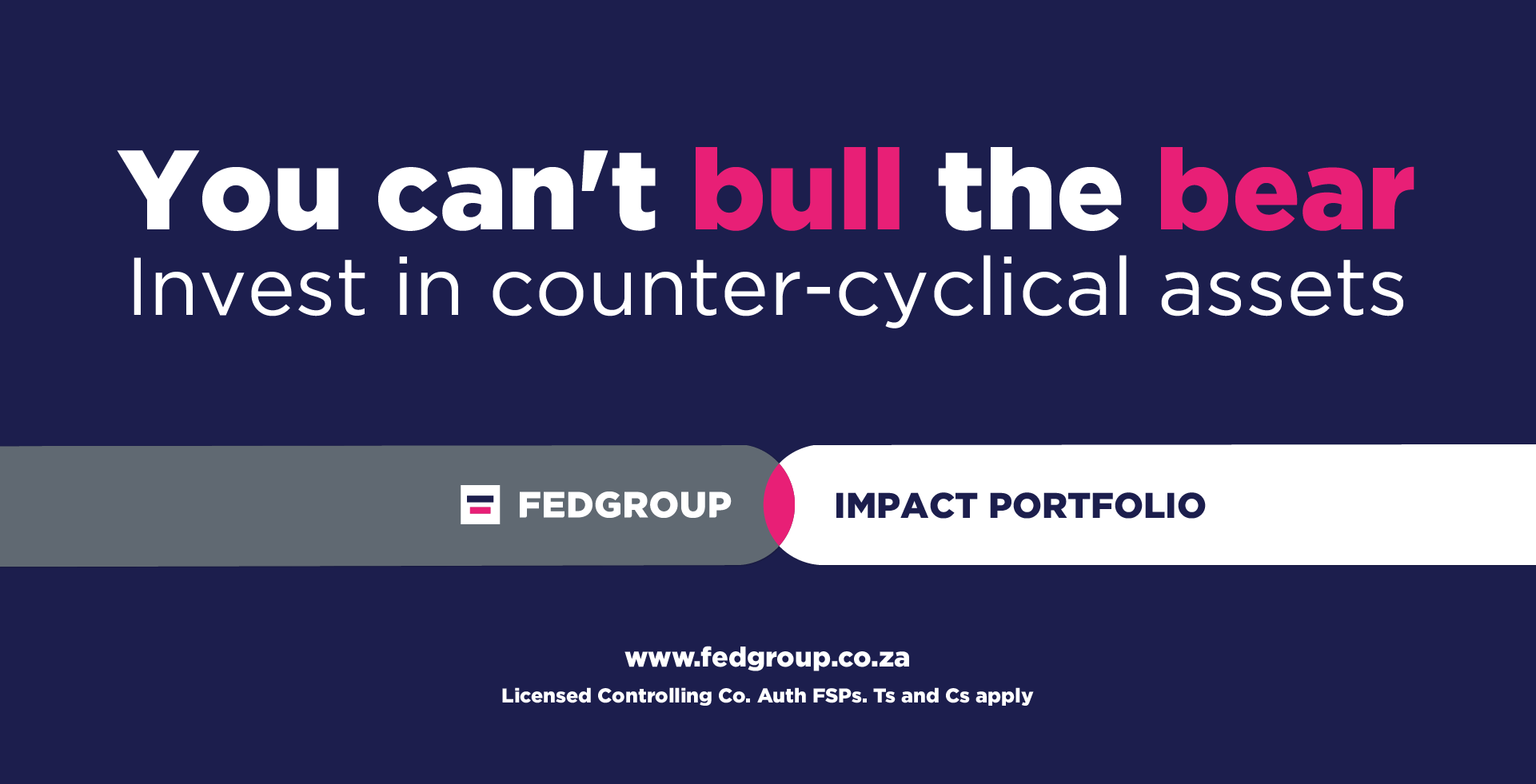Written by Paul Counihan, Fedgroup Chief Wealth Officer, and Nomzamo Manqele, Fedgroup Financial Specialist.
Everyone wants to know what the future holds. We develop forecasting tools and models to make predictions, but even in this interconnected age with access to the best technology and smartest analysts, nobody saw the deluge of black-swan events of the past three years coming.
Global events of this magnitude can have a catastrophic impact on our investment portfolios. And for most investors, they already have.
While these events can create volatility and uncertainty in the market, understanding that turbulent markets are an expected response to global events can help us avoid making rash decisions and maintaining a disciplined investment approach that focuses on our long-term objectives.
Although markets reacted to a worldwide pandemic or global forces being pitted against each other exactly as expected, there has been a seismic shift in the underlying global economy.
We enjoyed a prolonged bull market, but we now find ourselves in what many expect to be an extended bear market. And that doesn’t bode well for those traditional assets that are linked to market sentiment. A decrease in the availability of equities on the JSE, coupled with the universal underperformance of traditional asset classes and a government pursuing its own goals, has seen South African investors move their money offshore en masse. But even that doesn’t work when the whole globe finds itself in a high interest rate cycle.
The problem with these events is that they can happen at any time, and you can never be sure how long their effects will last, throwing even the best laid plans off-kilter. And what do people do when faced with the unknown? They stick to what’s familiar, even when what is really required is some lateral thinking and common sense.
We’ve proven that we can’t predict the future, but we can learn from the past and plan accordingly. This is where the cardinal rule of investing comes into play. Diversification is less likely to let you down than those models that didn’t predict a global pandemic.
No longer a nice-to-have, true diversification offers investors a way to smooth out financial journeys by having assets with uncorrelated performance and risk factors rather than simply incorporating a limited range of similar assets, as many traditional investment vehicles do.
So, with most portfolios invested in the same collection of funds and their performance so highly correlated to the same events, how do we go about bolstering investment portfolios against the unpredictable and the uncertain?
The answer relies on us taking off our equity blinkers and re-evaluating what we consider to be viable investment options.
Commanding a mammoth share of the investment landscape, the alternative asset class represents a feasible option for investors with strained portfolios. And although they often play in an unregulated space, all alternative assets are not created equal and don’t come with the same risk profile. Sustainable assets, for example, have become more mainstream and address the needs of investors as well as some of our country’s key socioeconomic pain points.
Due to its growing prevalence and track record, alternative investments are becoming increasingly accessible to investors. And when packaged by a credible financial services provider with the requisite experience and track record in managing alternative assets, products that are built on the right, curated selection of underlying assets could change the investment landscape.
And those opportunities to invest in the real economy and contribute to alleviating some of our nation’s biggest concerns exist and are open to those who are willing to explore innovative ways to diversify their portfolios.
Astute investors are already investing in the commercial-scale installation of solar panels and in ventures that provide much-needed finance to farmers. Businesses operating in these sectors are more likely to stand the test of time and therefore inspire confidence in the stability of future investments.
The existing angst-inducing market conditions will undoubtedly also have an impact on the performance of investment portfolios for years to come. While we don’t have control over the decisions made by heads of state, we owe it to ourselves to interrogate our existing assumptions and explore new investment strategies that incorporate counter-cyclical assets offering greater stability to investment portfolios. We must consider allocating a responsible portion of investment funds towards alternative assets that have a proven track record of riding out and overperforming in bear markets.
We shouldn’t disregard entire asset classes based on psychological biases. Market cycles will inevitably continue to change for as long as people continue to invest.
The key is to build an investment portfolio that is robust and sustainable enough to withstand the volatility and turbulence that accompany these market cycles – investment portfolios that are geared for any eventuality.
Speak to your financial advisor about Fedgroup’s Impact Portfolio, a curated selection of alternative assets wrapped in an endowment structure to offer true diversification and greater peace of mind.




